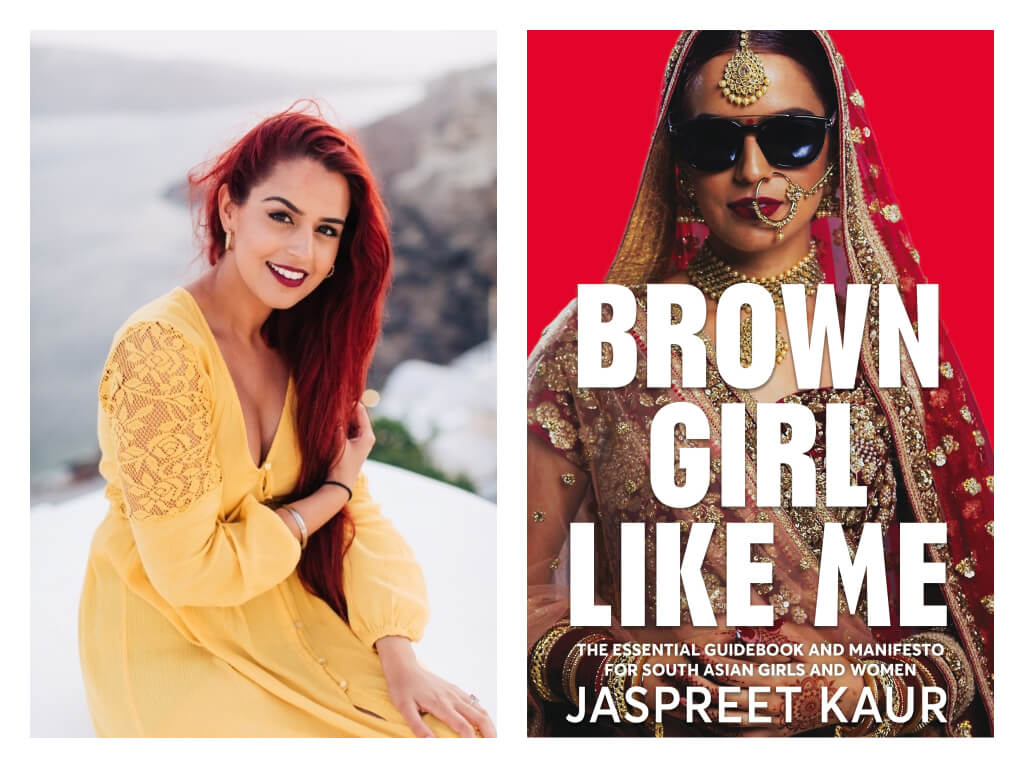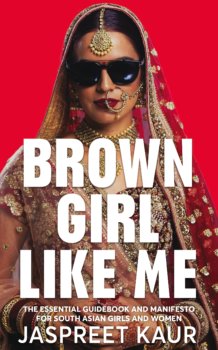
We Tell You Why “Brown Girl Like Me” By Jaspreet Kaur Is Book We’ve Been Waiting For
Lifestyle Feb 16, 2022
Noted award-winning author, speaker and academic Jaspreet Kaur realized that there needs to be a book —”toolkit” as she calls it— to help the future generations of South Asian women navigate various obstacles that are usually put forth in front of us. She tackles hot button topics including mental health awareness in our community, handling microagressions, the idea of feminism and more. We chat with Jaspreet about why this book is something we’ve all been waiting a long time for.
Hina P. Ansari: Congrats Jaspreet on your book. Tell me, what inspired you to write it?
Jaspreet Kaur: When I was younger, I always wished there was a guidebook on how to deal with growing up brown, female, marginalised and opinionated, but there was no blueprint at the time. I remember growing up feeling like I didn’t see Asian women anywhere; our voices and experiences were missing from history books, positions of power, boardrooms, and TV screens. When I did see Asian women, they would also be conveyed as passive, quiet and docile, but I knew brown women were so much more than that and I wanted the rest of the world to see that too. Every day, brown women are resisting, challenging and thriving. But where were their stories? That’s when the idea for Brown Girl Like Me was born.
HPA: You mention that this book is a toolkit. Tell me more?
JK: The book is part toolkit, part call-to-arms, a brown girl manifesto that equips girls and women with the confidence and tools they need to navigate the difficulties of an intersectional identity. It unpacks key issues such as the media, the workplace, the home, education, mental health, culture, confidence and the body, to help South Asian women understand and tackle the issues that affect them, and help them be in the driving seat of their own lives. The book is interwoven with academic research, anecdotal stories and interviews with brilliant South Asian Women of all walks of life, from politicians to filmmakers, psychologists to schoolteachers, activists to Olympic athletes, bibis and granddaughters, to show what life is really like for brown women in the diaspora.
HPA: You expose quite a bit of your own personal experiences. That must have been challenging to be that vulnerable for the world to see.
JK: I wanted to give myself permission to be vulnerable, I shared experiences of my mental health struggles, anxiety and depression, examples of microaggressions that I faced within educational institutions and the workplace, how I navigate difficult moments with my family and cultural expectations, and most importantly, ways in which I overcame obstacles and barriers. I believe that vulnerability creates connection, and can help others, so I’m glad I shared these personal moments in the book. It reminds us that we’re not alone.
HPA: Who are you hoping connects to the book?
JK: This book is essential reading for anyone wanting to build a fuller picture of women’s lives in Britain today. It’s essential reading for South Asian women as well as people with an interest in feminism and cultural issues and will educate, inspire and spark urgent conversations for change. But this book is not just for Asian women. It really is a book for society to better understand a significant part of our population. Ultimately, I want this book to foster a space for learning, understanding and empathy.

HPA: What are key messages you want to convey?
JK: The book is a blueprint for brown women everywhere, with the nucleus being healing. Healing from the hurt, confusion and loneliness we may have faced in our lives as Asian women, and with that healing comes a sense of confidence and self-empowerment.
One of the most beautiful findings from the book is that there is a sisterhood of brown women growing, online and offline, that are there to support one another.
Another key message from the book is that you don’t need to come closer to “whiteness” to become a strong, independent feminist and to love who you are. In fact, there is so much within Asian culture and history that can help empower us, and we can lean into that.
HPA: You touch on topic not really written about. What was the most interesting one you encountered while researching and writing this book?
JK: One of the most interesting findings was how brown women are so used to putting up with pain, in more ways than one. Combine this with the lack of research and funding going into South Asian women’s health (compared to white-cis-men), it means that women’s pain is often dismissed, their illnesses misdiagnosed or ignored. It’s known as the Yentl Syndrome.
HPA: What about men? I think they need to read this book as well.
JK: This book will definitely help men be better allies to the women in their lives. There are a lot of messages in the book that aims directly at male readers on what they can do better, but also specific issues that may affect them too. For example, institutional racism and patriarchal structures impact brown men in many ways. In the book, I’ve highlighted how detrimental they can be to the mental health of men in our communities.

HPA: Why should we pick up your new book?
Being a woman in this current climate is hard, being a brown woman is even harder. The pandemic has made things even more difficult, the World Economic Forum’s Global Gender Gap Report suggested that the impact of the pandemic means the expected closing of the global gender gap has increased by a generation, from 99 years in the future to 135 years. This book is my way of helping that fight for positive change.
The last book of this kind was written in 1978, 4 decades ago, so it’s about time that brown women are seen, heard and empowered.
Main Image Photo Credit: Jaspreet Kaur
Hina P. Ansari
Author
Hina P. Ansari is a graduate from The University of Western Ontario (London, Ontario). Since then she has carved a successful career in Canada's national fashion-publishing world as the Entertainment/Photo Editor at FLARE Magazine, Canada's national fashion magazine. She was the first South Asian in...













































































































